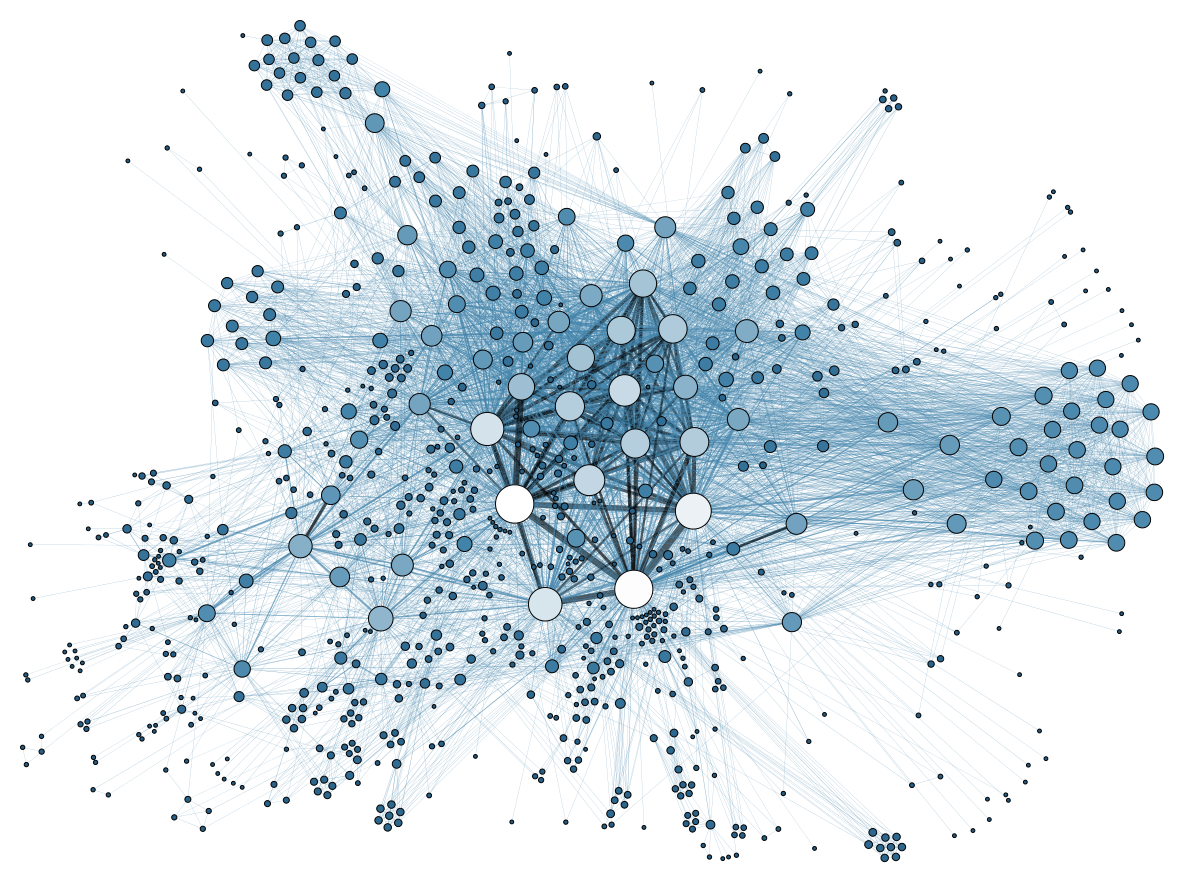Publications
In Revision, Review, Preprint
Henry T. R., Robinaugh, D. J. & Fried, E. I. (In Revision). On the control of psychological networks. Preprint
Henry, T. R., Fisher, Z., & Bollen, K. A. (In Revision). Bayesian model averaging for model implied instrumental variable two-stage least squares estimators. arXiv:: 1808.10522
Peer-Reviewed Publications
Ye, A., Gates, K. M., Henry, T. R. & Luo, L. (in press). Path and directionality discovery in individual dynamic models: A regularized unified structural equation modeling approach for hybrid vector autoregression. Psychometrika.
MacCormack, J. K., Henry, T. R., Davis, B. M., Oosterwijk, S., & Lindquist, K. A. (2021). Aging bodies, aging emotions: Interoceptive differences in emotion representations and self-reports across adulthood. Emotion, 21, 227-246.
Jackson, J. C., Watts, J.*, Henry, T. R.*, List, J., Forkel, R., Mucha, P. J., Greenhill, S., Gray, R., Lindquist, K. (2019). Emotion semantics show cultural variation and universal structure across languages of the world. Science. (*Contributed equally)
Henry, T. R., Duffy, K., Rudolph, M., Nebel, M. B. Mostofsky, S. H. & Cohen, J. R., (2019). Bridging global and local topology in whole brain networks using the network statistic jackknife. Network Neuroscience. * netjack R package
Henry, T. R., Gates, K., Prinstein, M., & Steinley, D. (2019). Modeling heterogeneous peer assortment effects using finite mixture exponential random graph models. Psychometrika.
Henry, T. R., Feczko, E., Cordova, M., Earl, E., Williams, S., Nigg, J. T., Fair D. A., & Gates, K. (2019). Comparing functional connectivity between groups with confirmatory subgrouping GIMME. NeuroImage.
Dillion, K. H., LoSavio, S. T., Henry, T. R., Murphy, R. A. & Resick, P. A. (2019). The impact of military status on cognitive processing therapy outcomes in the community. Journal of Traumatic Stress.
Marshall, S. A., Henry, T. R., Spivey, L., Rhodes, S. D., Prinstein, M. J., & Ip, E. H. (2019). Social context of sexual minority adolescents and relationship to alcohol use. Journal of Adolescent Health.
Gates, K., Fisher, Z., Arizmendi, C., Henry, T. R., Duffy, K. (2019). Assessing the robustness of cluster solutions obtained from sparse count matrices. Psychological Methods.
Henry, T. R., Banks D., Owens-Oas, D., & Chai C. (2019). Modeling community structure and topics in dynamic text networks. Journal of Classification. arXiv:: 1610.05756
Henry, T. R., & Cohen., J. (2019). Dysfunctional brain network organization in neurodevelopmental disorders. In P. J. Laurienti, B. Munsell, & G. Wu. (Eds.) Connectomics: Methods, Mathematical Models and Applications.
Henry, T. R., Dichter, G., & Gates, K.. (2018). Age and gender effects on intrinsic connectivity in autism using functional integration and segregation. Biological Psychiatry: Cognitive Neuroscience and Neuroimaging.
Henry, T. R., Marshall S., Avis, N. E., Levine, B.J. & Ip, E. (2018). Concordance network modeling and clustering of symptoms in breast cancer patients. PLoS One.
Henry, T. R., & Gates, K. (2016). Causal search procedures for fMRI: Review and suggestions. Behaviormetrika.
Gates, K., Henry, T. R., Steinley, D., & Fair, D. (2016). A Monte Carlo evaluation of weighted community detection algorithms. Frontiers in Neuroscience.
Henry, T. R., Gesell, S., & Ip, E. (2016). Social position predicting physical activity level in youth: An application of hidden markov modeling on network statistics. Social Computing, Behavioral-Cultural Modeling and Prediction (ConferenceProceedings Volume). * Winner of Best Student Paper at SPB-BRiMS 2016.
Henry, T. R., Gesell, S., & Ip, E. (2016). Analyzing heterogeneity in the effects of physical activity in children on social network structure and peer selection dynamics. Network Science.
Persky, A., Henry, T. R., & Campbell, A. (2015) An examination of personality, attitudes, and study skills on the learning curve within a team-based learning environment. American Journal of Pharmaceutical Education.
Logan, D. E., Henry, T. R., Vaughn, M., Luk, J. W., & King, K. M. (2011). Rose-colored beer goggles: The relation between experiencing alcohol consequences and perceived likelihood and valence. Psychology of Addictive Behaviors.
